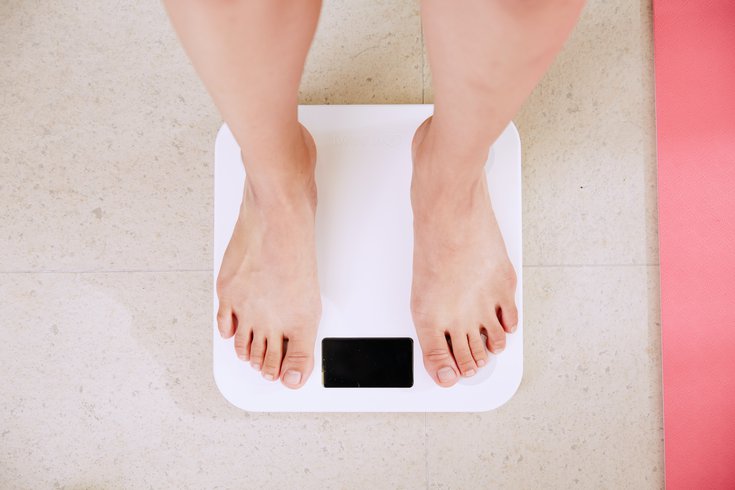
September 17, 2021
 i yunmai/Unsplash
i yunmai/Unsplash
Trying to lose weight can be a challenge at any time, but especially when juggling the new duties of motherhood.
One of the most common goals of new mothers – besides loving their newborn babies and trying to get some sleep – is to lose pregnancy weight.
For a healthy pregnancy, the U.S. Centers for Disease Control and Prevention recommends women of average weight gain 25-35 pounds. Underweight women should gain 28-40 pounds. Overweight women are advised to keep their weight gain to 15-25 pounds.
Pregnancy weight gain includes the baby, placenta, amniotic fluid, breast tissue, blood, uterus enlargement and extra fat stores needed for birth and breastfeeding, according to research published in the American Journal of Obstetrics & Gynecology.
Too much weight gain, however, can result in extra body fat. This is what most people are referring to when they say "baby weight." It is very common, according to the CDC. Almost half of pregnant women gain more than the recommended weight during pregnancy.
But there are few weight-loss guidelines designed specifically for new moms. Trying to lose weight can be a challenge at any time, but especially when juggling the new duties of motherhood while their bodies are still recovering the from pregnancy and delivery.
According to a new study, there are no clinical guidelines established for losing weight after pregnancy beyond instructions to eat healthy and exercise. And though losing weight between pregnancies not only improves future pregnancy outcomes, but also lowers the new mother's risk for future chronic disease, there is limited data on how to best help women lose weight after pregnancy.
"Overall, the recommendations emphasized weight loss via diet and exercise," explainedMara Murray Horwitz, assistant professor of medicine at Boston University School of Medicine. "However, the best ways to support weight loss postpartum are not really known. They also recommend heart disease risk screening (followed by individualized counseling and treatment, as needed), and talking with patients about ways to improve their health in future pregnancies."
Because women's bodies go through so much change during pregnancy and the postpartum period, it is essential they receive better care during and after pregnancy, researchers said. That includes returning to a healthy weight to reduce risk of obesity.
Women who are struggling to lose some of that extra baby weight may consider these tips from health experts at the Mayo Clinic, Healthline and John Hopkins Medicine.
1. Avoid crash diets or fads. Health experts emphasize that new moms need good nutrition to heal and recover. Extremely limiting caloric intake to lose weight quicker makes women feel more tired when they are already sleep-deprived from midnight feedings. According to the Academy of Nutrition and Dietetics, decreasing caloric intake by just 500 calories a day will help stimulate a weight loss of about 1.1 pounds per week, which is considered safe for breastfeeding women.
2. New moms already have a lot on their plates. Make calorie counting simpler by keeping a food diary or using a mobile app that keeps track of daily calories.
3. Eat more plant foods high in fiber, including fruits, vegetables and whole grains. Stick to lean protein and limit sweets and salts.
4. Mothers who are having trouble finding time to exercise can take their babies for daily walks, either in a stroller or baby carrier.
5. Avoid comparisons to celebrities who appear to bounce back from pregnancy so quickly. Remember they most likely have personal trainers and personal chefs to help them.
6. Incorporate core-strengthening exercises into a fitness routine. It will help the abdominal muscles that get stretched during pregnancy return to their former shape.